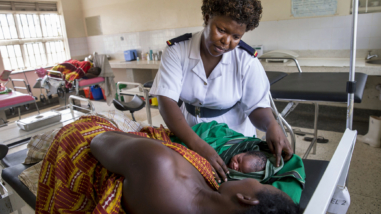World Bank
For A Project To Benchmark The Quality Of Health And Education Services In Sub-Saharan Africa
-
Amount$1,000,000
-
Program
-
Date Awarded3/17/2017
-
Term18.0 Months
-
Type of SupportGeneral Support/Program
About the Grantee
Grantee Website
www.worldbank.org


